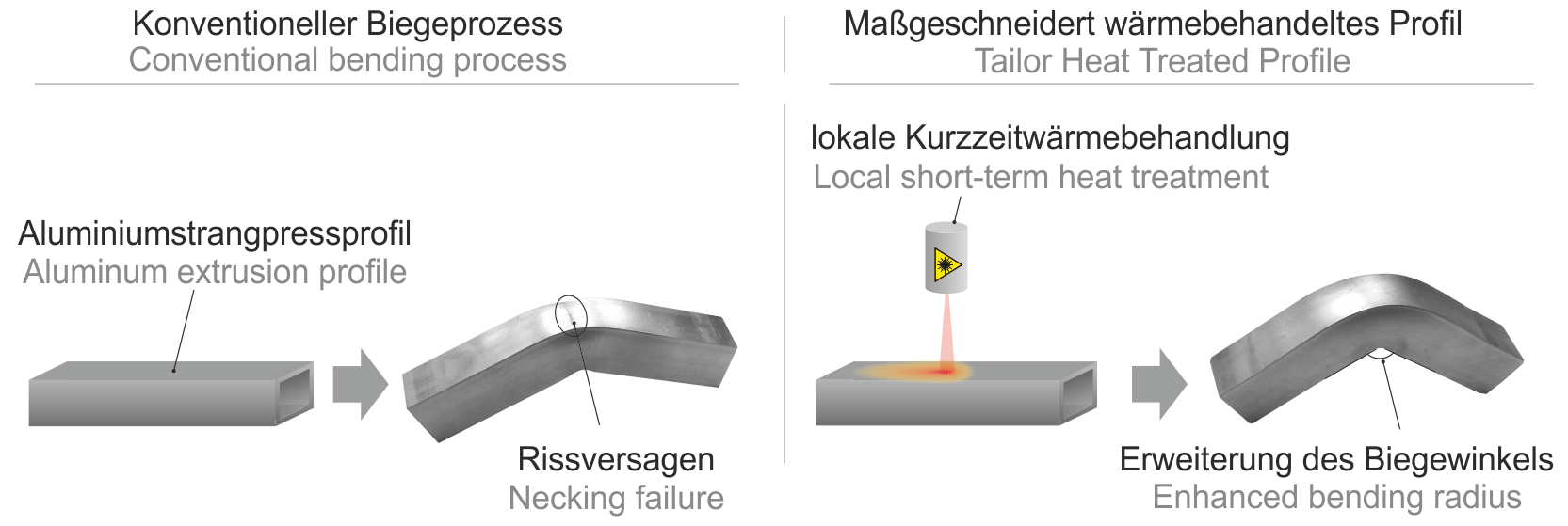Improvement of formability of extruded aluminium profiles by a local short-term heat treatment
Third party funded individual grant
Start date :
01.10.2013
End date :
30.09.2020

Project details
Short description
The objective of the
research project is the enhancement of the forming limits and the
tailoring of mechanical component properties of curved aluminum extruded
profiles by a local short-term heat treatment before the forming
process. Prerequisite for the successful application is the basic
scientific investigation of a short-term heat treatment of aluminum
extrusions and their interaction with a subsequent bending operation.
Based on the fundamental understanding and consideration of the complex
stress and strain state within profile bending an appropriate property
distribution is determined in order to improve the formality. A
suitable, laser-assisted heat treatment should be derived using a heat
treatment simulation, which predicts the new mechanical properties in
dependency of the microstructural changes. Finally, the artificial
ageing capability of the material will be investigated.
Scientific Abstract
Aim of the research project is the enhancement of the forming limit and the adjustment of the final mechanical properties of curved aluminum profiles by tailored heat treatment before the forming process. The influence of a short term heat treatment on aluminium profiles and the interaction with subsequent bending operation will be investigated fundamentally. This is a significant enhancement of the state of the art. Until now, in particular, fast hardenable aluminum blank alloys, which were especially developed for a short term heat treatment, were analyzed. The influence of a short term heat treatment on the mechanical properties of extruded aluminum profiles is not investigated yet. Regarding the influence on the microstructure there is only basic knowledge. On the one hand it is to be analyzed what microstructure and property changes can be induced due to the thermal treatment and how they can be controlled by a heat treatment process. Based on the basic understanding an appropriate property distribution should be determined in order to extend the forming limit, taking into account the complex stress and strain state in profile bending. Criteria for the improvement will be the contour accuracy achieved during the forming process or the reduction of the bending radius for the same cross-sectional deformation. The heat treatment will be designed using a thermo-mechanically coupled simulation which can determine the change of the mechanical properties derived by microstructural dissolution of precipitations. Finally, the question arises, how the interaction of a heat treatment and a bending operations affect the subsequent aging mechanisms and which final properties at the end of the process chain can be realized.
Contributing FAU Organisations:
Funding Source

